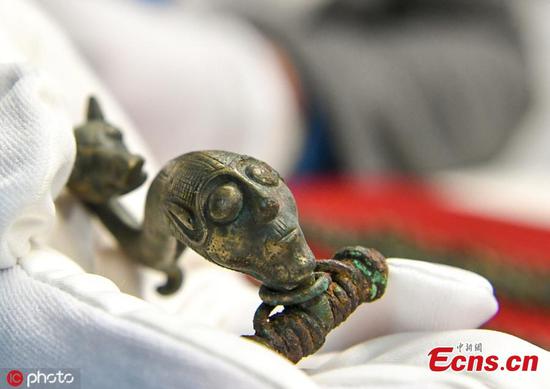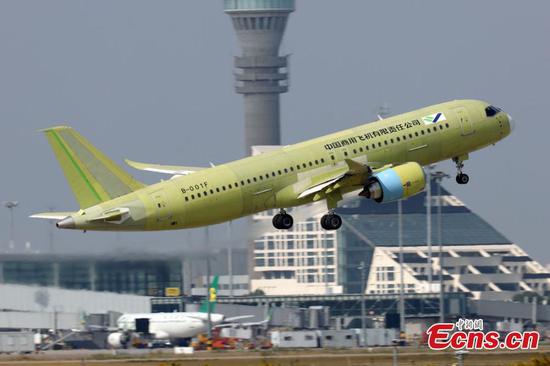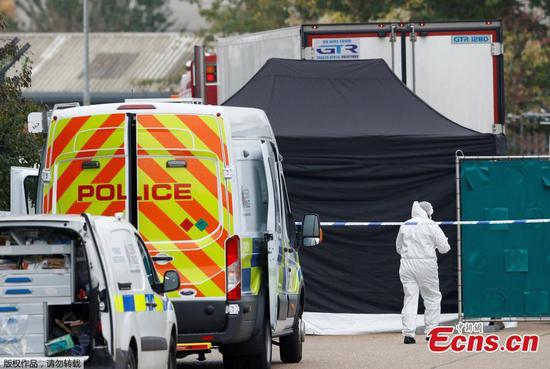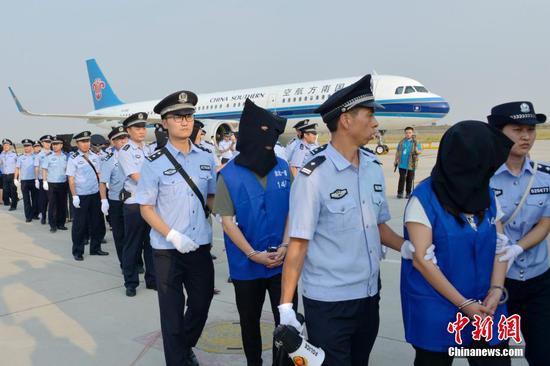Lion Air crash report details design flaws and training, maintenance issues
An Indonesian investigation found a Lion Air flight that crashed and killed 189 people a year ago was doomed by a combination of aircraft design flaws, inadequate training and maintenance problems.
A final accident report released on Friday said Lion Air flight 610, from Indonesia's capital Jakarta to the island of Sumatra, crashed because the pilots were never told how to quickly respond to malfunctions of the Boeing 737 Max jet's automated flight-control system.
The jet plunged into the Java Sea just 13 minutes after its takeoff on Oct 29, 2018.
Indonesia's National Transportation Safety Committee said the automated system, known as MCAS, relied on a single "angle of attack" sensor that provided erroneous information, automatically shoving the nose of the Max jet down.
"The design and certification of the MCAS did not adequately consider the likelihood of loss of control of the aircraft," the report said.
The report also said "deficiencies" in the flight crew's communication and manual control of the aircraft contributed to the crash, as did alerts and distractions in the cockpit.
The accident had been caused by a complex chain of events, Indonesian air accident investigator Nurcahyo Utomo told reporters on Friday.
"From what we know, there are nine things that contributed to this accident," he said. "If one of the nine hadn't occurred, maybe the accident wouldn't have occurred."
During the flight, the first officer was unable to quickly identify a checklist in a handbook or perform tasks he should have had memorized, it said, adding that he had also performed poorly in training exercises.
The captain did not properly brief the first officer when handing over control just before the plane entered a fatal dive, it also said.
The report noted that, according to the cockpit voice recorder, the first officer told the captain the flight was not in his initial schedule and he had been called at 4 am to be informed of the revision, while the captain said he had the flu.
A critical angle of attack sensor providing data to the MCAS had been miscalibrated by a company in Florida and that there were strong indications that it was not tested during installation by Lion Air maintenance staff, the report said.
Lion Air should have grounded the jet following faults on earlier flights, it said, and added that 31 pages were missing from the airline's October maintenance logs.
Lion Air declined to comment.
Boeing's President and CEO Dennis Muilenburg said later on Friday that the company is addressing the committee's safety recommendations and working to enhance the safety of the 737 Max jet "to prevent the flight control conditions that occurred in the accident from ever happening again".
The Indonesian report followed another last month from United States federal accident investigators who concluded that Boeing and the Federal Aviation Administration underestimated how a blizzard of visual and auditory warnings would slow pilots' ability to respond quickly enough to avert crashes.
The FAA said it welcomed the report's recommendations and would carefully consider them and all others as it continued to review Boeing's proposed changes to the 737 Max.
Just five months after the Indonesian crash, the same kind of malfunction caused a Max jet to crash in Ethiopia, killing 157 people.
That led to the grounding of all 737 Max jets and put Boeing under intense pressure to explain problems associated with the MCAS system. The aircraft still has not resumed flying.
Muhammad Asdori, 55, whose brother and nephew were killed in the Lion Air crash, said: "We are very angry (at Boeing) because their negligence has caused our loved ones to die.
"They should have anticipated any kind of problems. … We were even more angry when we learned that they had only admitted their mistake when the second Max plane crashed in Ethiopia."


















































